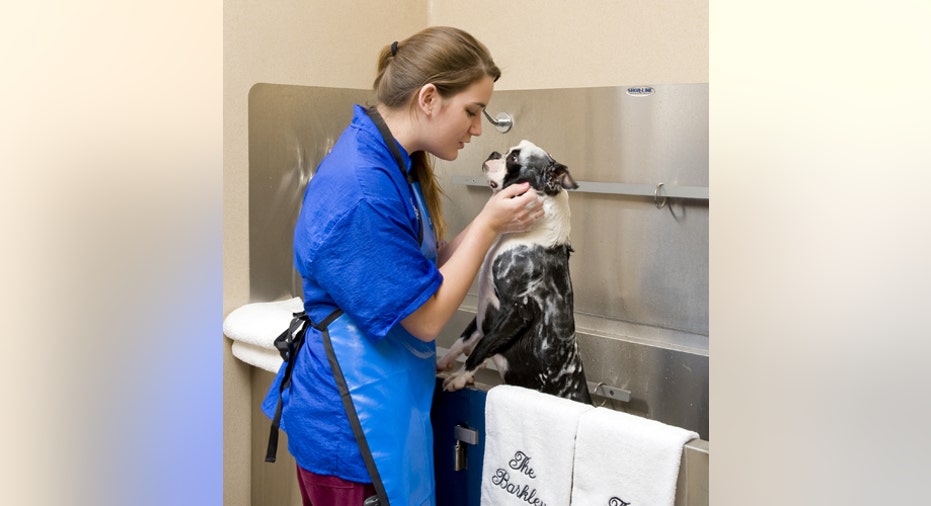Do Pet Owners Need a Will?

The unconditional love that pets offer their owners is something many pet parents would say they can’t live without. Much like a house or a car, pets are considered property under the law. But unlike cash assets, pets can’t be left in the bank when something happens to their owners, and experts say pet owners would be wise to leave provisions for their furry friends in a will or another legal document to ensure uninterrupted care and love.
“If you are really concerned about your pet, you’ll put a provision in your will that will state who will be in possession of the pet, and set aside money for the care of the pet,” says Frederic Siegel, partner at Firm Siegel, Reilly and Conlon in Stamford, Conn.
Without legal provisions, in the event of your death, the pet would be considered an asset of the deceased’s estate, and would be given to an heir once the assets were divided, which could take months. If a pet owner has no will and no living relatives, it’s highly likely that the pet would be sent to a kill shelter unless someone stepped in to claim it, says Siegel.
Because the reading of a will can take months, attorney Rachel Hirschfeld, owner of Rachel Hirshfeld Law and national trust practitioner, says that making provisions for your pet in a trust or getting a “pet protection agreement,” can be a better option than a will because the pet will receive care immediately.
“Even if you had a will that mentioned your dog, if a friend went into your home to remove the dog before the will was read, they would be breaking and entering and stealing property,” says Hirschfeld. “But if you have a trust set up for your pet, as soon as you are unable to care for your pet, the trust is activated and the trustee has full rights to the animal.”
Under the terms of a pet trust, which must be drafted by a lawyer, both parties (the owner and designated caretaker) must sign the document and there must be money put in the trust for the pet’s care. Most pet trusts also list successors for pet ownership, so if something happens to the first person named, the pet still has a caregiver.
Another option to secure a pet’s future is a pet protection agreement, which differs from a trust in that no funds for the care of the animal are required, and individuals do not need a lawyer to execute the agreement. Hirschfeld says that sites like LegalZoom.com offer pet protection agreements for under $40. Unlike wills, both a trust and a pet protection agreement are valid in all 50 states, allowing a pet owner to easily leave their animal to a relative in a different state.
If you decide to list your pet in your will, Siegel says it shouldn’t influence the cost of the will by more than a few dollars.
“You can have a simple provision in your will that states, ‘I want possession of X animal to go to X person and I am setting aside X amount of money for them,’” says Siegel. “This should be a 5 to 10 minute thing, and should not influence the price. Of course, some people may want a lengthy document that states everything from what kind of food pet gets, what kind of shampoo you use to bathe it, and that’s going to cost you.”
Above all, pet owners should treat the pet provision process as if they are taking care of a child, says Siegel. A person wouldn’t leave their child in someone’s care without a legal document or without money to care for the child, and pets should be looked at the same way.
“It’s a burden on anyone who has an animal, between vet bills, medical insurance, food, and a caregiver for when you’re away. You don’t have to leave $10 million like Leona Helmsley, but somewhere around $5,000 would be reasonable depending on the size and age of the animal,” says Siegel.
Some animal lovers, like Wendy Diamond, owner of Animal Fair Media and animal rescue advocate, says responsible pet parents should make extra provisions to keep their pets living at the standard to which they are accustomed.
“I have both my cat and my dog in my will, and I have allocated two people as caregivers in case something happens to one of them,” says Diamond. “I have also made provisions for my pets to be kept in the same apartment, have the same doggy nanny, have the same food, be walked three times a day and have two week-long vacations each year.”
But even if doggy vacations aren’t in your budget, Diamond says above all, pet parents must speak to someone in the family and ask them to care for their pet in the event of a disaster. The person who cares for your pet should have keys to your house, specifics on the type of care your pet receives and the phone numbers to veterinarians and groomers.
“We never want to believe anything is going to happen to us, but you have to be prepared, because you are responsible for your pets,” says Diamond. “There would be nothing worse than having your pets end up in a kill shelter just because you didn’t make a few phone calls to make sure they’re taken care of.”



















